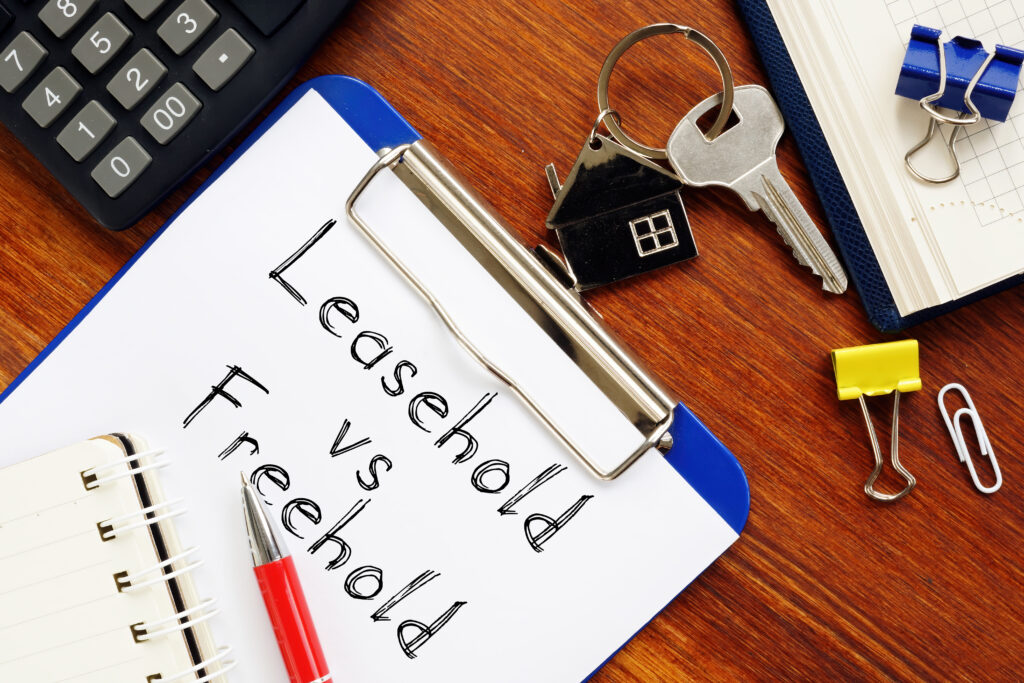Understanding property terms is essential for both buyers and sellers in the real estate market. Two commonly encountered terms, particularly in the UK, are ‘leasehold’ and ‘freehold’. While these terms may appear confusing at first glance, they define some crucial aspects of property ownership. This article demystifies the differences between leasehold and freehold, making these terms more understandable.

Freehold: The Complete Ownership
The term freehold refers to complete ownership of a property and the land it stands on. When you purchase a freehold property, you own it outright, including the building and its land, indefinitely. In other words, it is yours until you decide to sell it.
The benefits of owning a freehold property are significant. You have the freedom to do what you want with the property, subject to planning permissions and building regulations, of course. There is no need to deal with a freeholder or worry about ground rent or service charges. In addition, you won’t need to be concerned about the diminishing term of a lease, a problem commonly associated with leasehold properties.
Leasehold: A Temporary Ownership
Leasehold, on the other hand, is akin to long-term rental. When you buy a leasehold property, you do not own the land it stands on. Instead, you own a lease from the freeholder (also known as the ‘landlord’ or ‘lessor’) to use the home for a set period.
Leases can last for decades or even centuries – typically, they start at 99 or 125 years, but they can extend up to 999 years. However, it’s essential to note that as time goes on, the lease’s remaining term diminishes, which can potentially affect the property’s value.
Challenges of Leasehold Ownership
With leasehold properties come additional obligations. Leaseholders often have to pay ground rent to the freeholder, and this ground rent can sometimes be subject to increase. Additionally, there may be service charges for the maintenance of the building and common areas, which can fluctuate depending on the necessary upkeep in a given year.
Furthermore, leaseholders might require the freeholder’s permission for significant alterations to the property. Lastly, when the lease ends, ownership returns to the freeholder, unless the leaseholder can negotiate a lease extension or opt to purchase the freehold. This process, known as enfranchisement, can be complex and costly.
Shared Ownership: A Middle Ground
There’s a third type of property ownership that has gained popularity in the UK, which blends aspects of both leasehold and freehold – ‘shared ownership’. This scheme allows people to buy a share of a leasehold property (between 25% and 75%) and pay rent on the remaining portion. Shared owners can choose to increase their share over time, a process known as ‘staircasing’, until they own the property outright.
Making an Informed Choice
Whether you’re looking to buy a freehold, leasehold, or shared ownership property, it’s crucial to understand the financial and legal implications involved. It’s recommended that buyers employ the services of an experienced conveyancing solicitor to guide them through the process, clarify the terms of any leasehold agreement, and ensure they are making a sound investment.
Future of Freehold and Leasehold
Recent developments in UK property law indicate potential changes to the leasehold system, with governmental discussions around reform. These discussions focus on alleviating some of the burdens leaseholders face, like escalating ground rent. Regardless of the outcomes, understanding the current differences between freehold and leasehold remains crucial for any potential property buyer or seller.
As the landscape of UK property ownership continues to evolve, it’s essential to stay updated with new laws, reforms, and their implications. Your estate agent and solicitor can provide valuable insights and updates to help you navigate these changes.
Freehold and leasehold, while fundamentally different, represent unique opportunities depending on individual circumstances and objectives. Your decision should be influenced by your long-term plans, financial situation, and appetite for responsibility in property maintenance and management.
In any property journey, knowledge is the key to unlocking successful real estate experiences. Understanding the intricacies of the UK’s property market, including the differences between leasehold and freehold properties, will empower you to make informed decisions and propel you forward on your property ownership journey.





